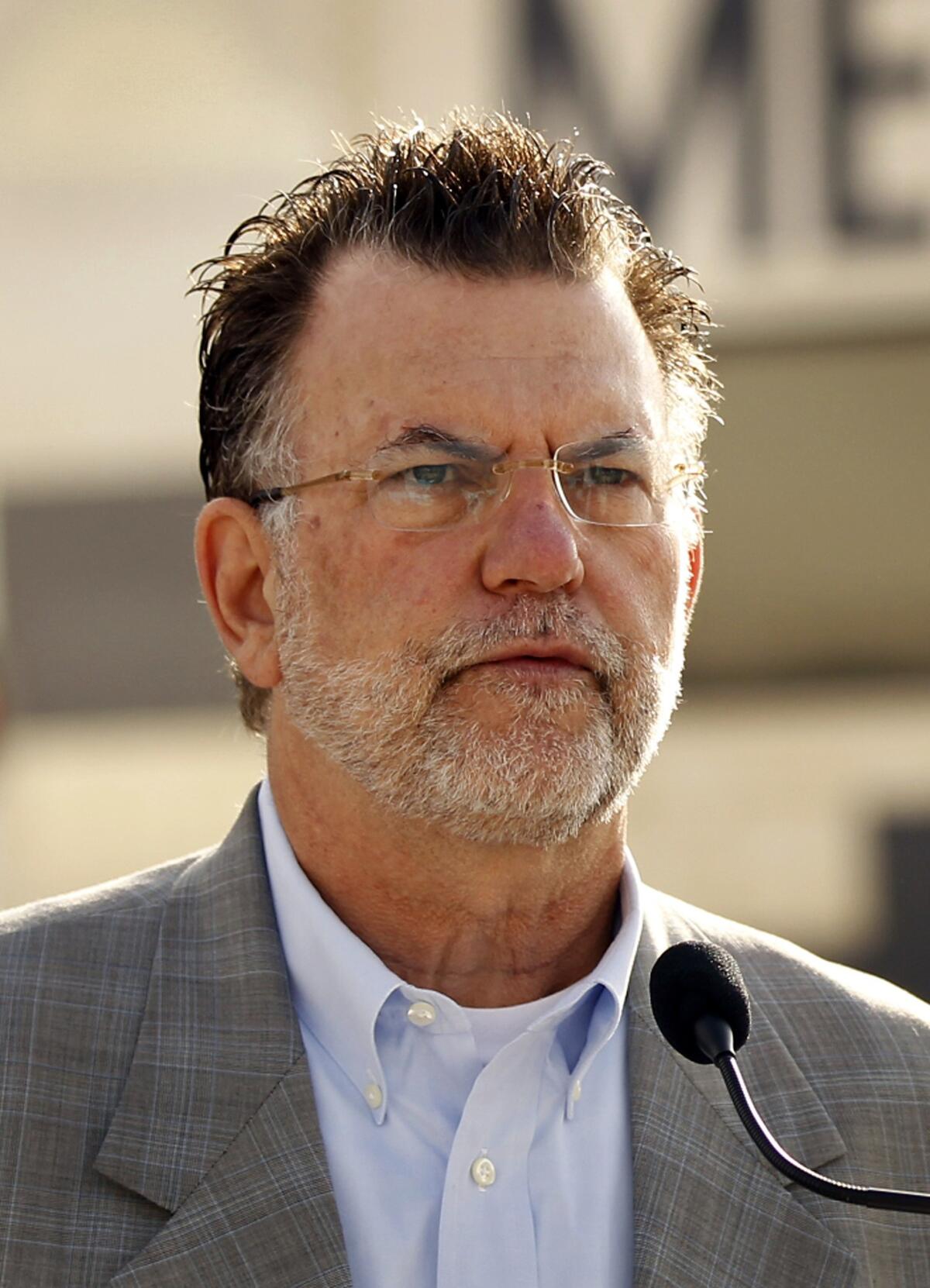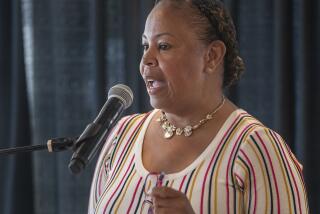Four key executives leaving in shakeup of Metro leadership

Four key executives are leaving the Los Angeles County Metropolitan Transportation Authority after their jobs were eliminated to make the agency more efficient and less top-heavy, officials said Friday.
Employees expressed surprise that leaders of some of the agency’s most important departments, including finance and real estate, would leave during a year that they had helped make possible. Metro will be managing an unprecedented $14 billion in Los Angeles County construction projects this year, including five new rail lines.
Multiple departments have already been merged, reducing by half the number of employees who report directly to Metro chief executive Art Leahy. Leahy previously had 22 employees directly under him, nearly twice as many as other big-city transit agencies, according to a Metro audit obtained by The Times. That sometimes made the department unwieldy and inefficient, the report said.
“For every two departments merged into one, there’s one higher-level executive who isn’t needed anymore,” said a source who would speak only on the condition of anonymity. The source added that paying fewer executive directors may help ease the agency’s financial issues: Metro is facing an operating deficit of $36 million in 2016, and most executive directors earn more than $150,000 a year.
Changes in the top tier can be healthy, said Richard Katz, a former Metro board member, and they indicate that Metro’s priorities are shifting toward more construction and long-term planning. One new executive position is tasked with overseeing rail and highway construction, another with planning and real estate.
Doug Failing, who had directed Metro’s highway programs, has left the agency, according to spokesman Marc Littman. Failing oversaw engineering and construction for Metro’s highway projects. Until he joined Metro in 2009, Failing supervised Caltrans District 7, which includes Los Angeles and Ventura counties.
Michelle Lopes Caldwell, Metro’s chief administrative services officer, has left as well, Littman said. She had worked for Metro and its predecessor agency, the Southern California Rapid Transit District, for more than 30 years.
Roger Moliere, Metro’s executive director in charge of real estate, is leaving soon, Littman said. Moliere supervised private development on Metro land, including the Hollywood/Vine complex that features the W Hotel.
Chief Financial Officer Terry Matsumoto is also expected to leave, multiple sources said. Matsumoto oversees accounting, debt, investments, pension and employee benefits. He also negotiated the Downtown Regional Connector’s $670-million federal grant agreement, which Metro accepted Thursday.
Chief executive Leahy has asked K.N. Murthy, formerly Metro’s executive director of transit project delivery, to remain at the agency, sources familiar with the situation said. But if he stays, he will not keep his current title.
None of the departing leaders could be reached for comment.
Metro’s executive-level staff has almost completely turned over in the last two years. Chief Operating Officer Frank Alejandro left his position last fall, and Metro’s deputy chief executive officer Paul Taylor retired last month. Taylor’s position has been filled by Lindy Lee, formerly the chief deputy director of Caltrans District 7.
In a report presented to Metro in October, the consulting firm that conducted the audit wrote that reorganizing the agency’s structure and work flow could help break down “silos” between departments and create “true cultural change.”
“As with any improvement effort, some changes will be rapid and highly visible,” the report said. “... While there will be skeptics, we hope that people will give it serious consideration and time to see how the changes being implemented will work.”
More to Read
Sign up for Essential California
The most important California stories and recommendations in your inbox every morning.
You may occasionally receive promotional content from the Los Angeles Times.


![Irvine, CA - July 16: Gina Osborn, shown at her home, is the former head of Metro security is suing the agency for firing her after she filed a claim with the Inspector General. Photo taken at her home Tuesday, July 16, 2024. Gina Osborn, a former FBI agent who was the agency's first chief safety officer, "was summarily terminated by [Chief Executive] Stephanie Wiggins," said her attorney, Marc R. Greenberg. Osborn says in claims that she butted heads with Metro's CEO over security as the agency was trying to put a good face on its efforts to clean up crime and loitering. (Allen J. Schaben / Los Angeles Times)](https://ca-times.brightspotcdn.com/dims4/default/c1419ae/2147483647/strip/true/crop/5981x4000+9+0/resize/320x214!/quality/75/?url=https%3A%2F%2Fcalifornia-times-brightspot.s3.amazonaws.com%2F46%2F07%2Fa88ac0b7466895ee4e137839d93c%2F1467168-me-former-metro-security-chief-18-ajs.jpg)








